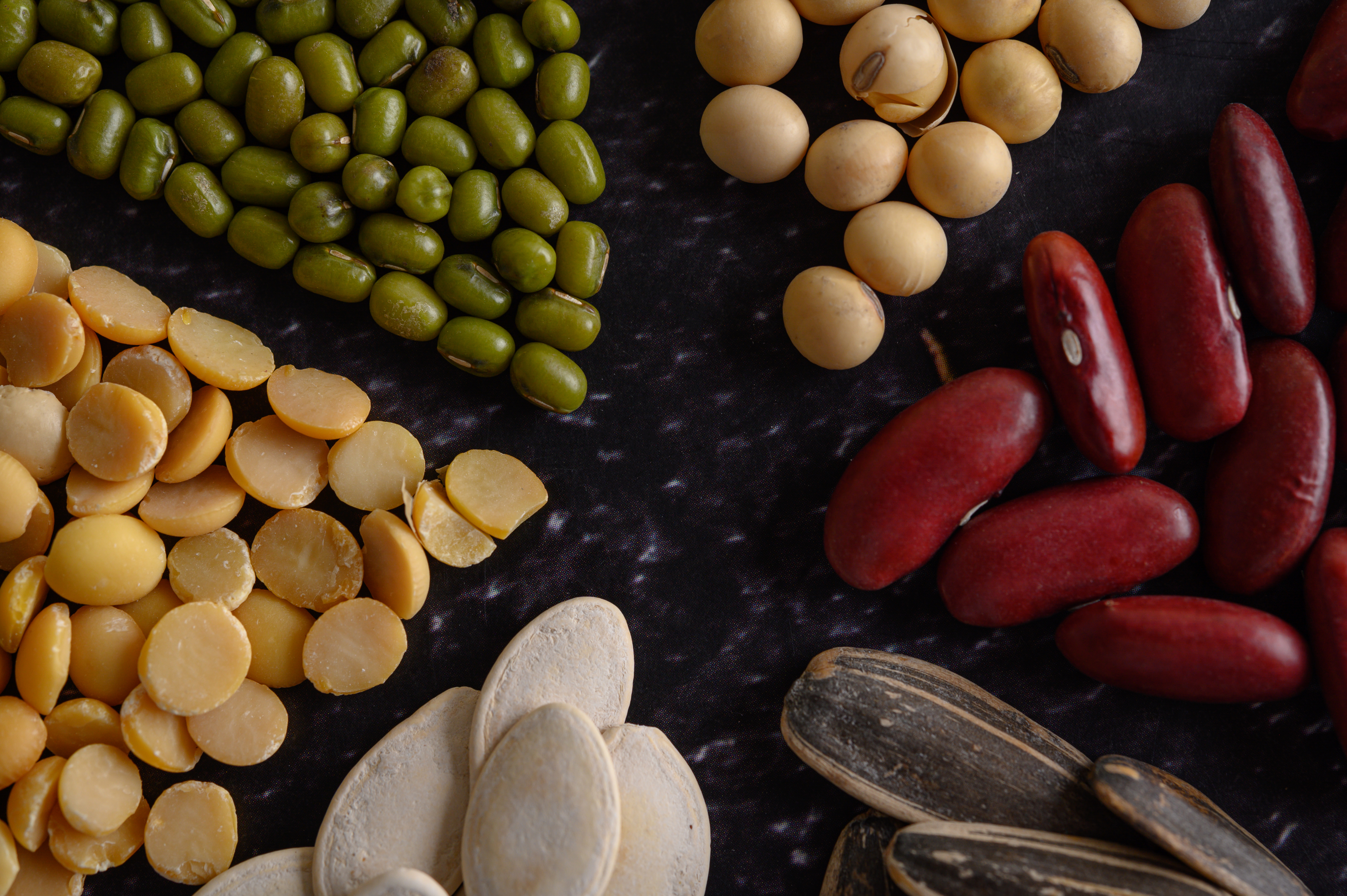12 Things You Should Never Do After Eating
In our fast-paced world, maintaining a healthy digestive system is often overlooked, yet it is crucial for overall well-being. Proper digestion not only supports nutrient absorption but also impacts mood, energy levels, and immune function. However, certain habits can sabotage this delicate process, leading to discomfort and long-term health issues. This article explores 12 habits to sidestep for a happier digestive experience after meals, providing insights into how minor lifestyle adjustments can foster significant improvements in digestive health. From mindful eating practices to avoiding certain post-meal activities, these strategies will guide you toward a more harmonious relationship with your digestive system.
1. Rushing Through Meals: The Fast Lane to Indigestion

Eating quickly is a common habit in our busy lives, but it can wreak havoc on digestion. When we eat too fast, we often don't chew food thoroughly, which is the first step in the digestive process. Chewing breaks down food into smaller particles and mixes it with saliva, initiating the breakdown of carbohydrates. Skipping this step forces the stomach to work harder, leading to indigestion and bloating. Moreover, rapid eating can cause overeating, as it takes about 20 minutes for the brain to register fullness. By slowing down and savoring each bite, we can enhance digestion and enjoy our meals more fully.
2. Skipping the Pre-Meal Ritual of Relaxation
Jumping straight into a meal without a moment of relaxation can set the stage for digestive distress. Stress activates the sympathetic nervous system, which diverts energy away from digestion. Taking a few deep breaths or practicing mindfulness before eating can activate the parasympathetic nervous system, often referred to as the "rest and digest" system. This shift promotes optimal digestive function by increasing digestive enzyme production and enhancing gut motility. Establishing a pre-meal relaxation ritual, such as a brief meditation or simply sitting quietly, can significantly improve digestive efficiency and comfort.
3. Overeating: The Digestive System's Burden
While it might be tempting to indulge in large portions, overeating can overwhelm the digestive system. The stomach can only handle a certain volume of food at a time, and exceeding this limit can cause discomfort, bloating, and acid reflux. Overeating also slows down the digestive process, as the body struggles to break down and absorb the excess food. Practicing portion control and listening to hunger cues can prevent this strain on the digestive system. By eating until comfortably satisfied rather than stuffed, we allow our digestive system to function more effectively and comfortably.
4. Drinking Excessive Fluids During Meals

While staying hydrated is essential, drinking large amounts of fluids during meals can dilute digestive enzymes and stomach acid, impairing digestion. This dilution can lead to incomplete breakdown of food and nutrient malabsorption. To support optimal digestion, it's advisable to sip small amounts of water during meals and focus on hydrating between meals. This practice helps maintain the necessary concentration of digestive juices, ensuring efficient breakdown and absorption of nutrients. By balancing fluid intake, we can enhance digestive health and prevent common issues such as bloating and indigestion.
5. Ignoring the Importance of Posture
Our posture during and after meals can significantly impact digestion. Slouching or lying down immediately after eating can compress the stomach and hinder the digestive process. This compression can lead to acid reflux, as stomach acid is pushed back into the esophagus. To promote better digestion, it's beneficial to sit upright during meals and maintain good posture for at least 30 minutes afterward. This position allows gravity to assist in the movement of food through the digestive tract and reduces the risk of discomfort. By being mindful of our posture, we can support a smoother digestive experience.
6. Skipping the Post-Meal Walk

After a meal, it's common to feel the urge to relax, but skipping a light walk can be a missed opportunity for improved digestion. Gentle physical activity stimulates the digestive tract, promoting better movement of food and reducing the risk of bloating and constipation. A short, leisurely walk for about 10 to 15 minutes after eating can enhance digestion by encouraging peristalsis, the wave-like contractions that move food through the digestive system. This simple habit not only aids digestion but also helps regulate blood sugar levels and supports overall metabolic health.
7. Overreliance on Processed Foods
Processed foods, often high in unhealthy fats, sugars, and additives, can be detrimental to digestive health. These foods are typically low in fiber, which is essential for healthy digestion and regular bowel movements. Additionally, additives and preservatives can irritate the gut lining and disrupt the balance of beneficial bacteria in the digestive tract. By prioritizing whole, unprocessed foods rich in fiber, such as fruits, vegetables, and whole grains, we can support a healthy gut environment and improve digestion. Making conscious food choices can lead to fewer digestive issues and better overall health.
8. Consuming Trigger Foods Without Caution

Certain foods are known to trigger digestive discomfort in many individuals, such as spicy dishes, caffeine, and high-fat foods. These triggers can vary from person to person, but they often lead to symptoms like heartburn, bloating, and diarrhea. Identifying and avoiding personal trigger foods can prevent these uncomfortable reactions. Keeping a food diary can help pinpoint which foods cause issues, allowing for more informed dietary choices. By understanding and respecting our body's unique responses to different foods, we can reduce digestive distress and enjoy meals without fear of discomfort.
9. Neglecting Fiber Intake

Fiber is a crucial component of a healthy diet, playing a vital role in digestion. It adds bulk to stools, making them easier to pass and preventing constipation. Fiber also acts as a prebiotic, feeding the beneficial bacteria in the gut and promoting a balanced microbiome. A diet low in fiber can lead to sluggish digestion and irregular bowel movements. To ensure adequate fiber intake, include a variety of fruits, vegetables, legumes, and whole grains in your diet. By embracing fiber-rich foods, we can support digestive health and reduce the risk of common digestive disorders.
10. Eating Late at Night

Consuming large meals close to bedtime can disrupt digestion and impair sleep quality. Lying down shortly after eating can lead to acid reflux and heartburn, as gravity no longer helps keep stomach contents down. Additionally, the body's metabolism slows during sleep, making it harder to digest food efficiently. To promote better digestion and restful sleep, aim to finish eating at least two to three hours before bedtime. This allows the body to complete the initial stages of digestion while still upright, reducing the likelihood of nighttime discomfort.
11. Ignoring Stress Management

Chronic stress can have a profound impact on digestive health, as it affects the body's ability to process food effectively. Stress can alter gut motility, increase acid production, and exacerbate conditions like irritable bowel syndrome. Incorporating stress management techniques into daily life, such as yoga, meditation, or deep breathing exercises, can improve digestion by calming the nervous system. By addressing stress, we not only enhance digestive function but also improve overall health and well-being. A balanced mind contributes to a balanced gut, underscoring the importance of mental health in digestive wellness.
12. Overlooking the Role of Hydration

While we've discussed the pitfalls of excessive fluid intake during meals, overall hydration is vital for digestion. Water helps break down food and absorb nutrients, facilitating the movement of waste through the digestive tract. Dehydration can lead to constipation and other digestive issues. To maintain optimal hydration, aim for regular water intake throughout the day, adjusting for factors like activity level and climate. By staying adequately hydrated, we support the body's natural digestive processes and promote a healthier, more efficient digestive system.
Embracing Digestive Wellness

Achieving happy digestion is a multifaceted endeavor that requires attention to various aspects of lifestyle and diet. By sidestepping these 12 detrimental habits, we can create a more harmonious digestive environment, leading to improved health and well-being. Implementing mindful eating practices, managing stress, and making informed food choices are key steps toward better digestion. As we become more attuned to our body's needs and responses, we pave the way for a healthier, more comfortable life. Embrace these changes and discover the joy of happy digestion, one meal at a time.